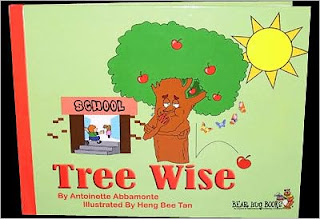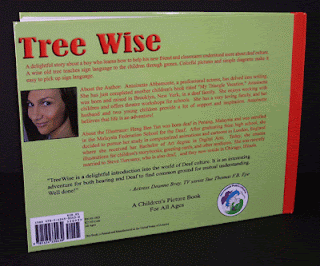 The Unheard: A Memoir of Deafness and Africa
The Unheard: A Memoir of Deafness and Africa(September 2007) by
Josh SwillerPaperback: 288 pages
Publisher: Holt Paperbacks
Don't walk! Run to your local bookstore and buy this book. After having the book in my possession for weeks, I finally picked it up and read it within two days (I do have a job or I probably would have finished it within one). Josh Swiller is honest, witty, at times frightening, and most of all tells a great story. He's the kind of guy you want to sit down and have coffee with... and as I noted about his Gallaudet presentation, he does like coffee. The story is fast-paced and I am still out of breath. As a writer, he will pull you in to become part of this story. Can it really be a memoir? Wow! As a reader, there were times that I adored him and there were also times that I wanted to throw the book across the room because he really bothered me. Although I met him before reading the book, I still wasn't sure if he would survive his experience in Mununga. Sounds silly but you've got to read this book! It's a little travel narrative and a little Hemingway (without all the wives and the cats). I hope you love the book (and him) as much as I do.
Meeting Josh just wasn't enough! I had to have an interview about his book. Read my recent interview below.************************************************************************SPW: During your presentation at Gallaudet, you began by saying there are three significant meanings to the title but then you didn't elaborate. I understand because you hadn't received your coffee just yet. Would you mind explaining the title now?
JS: Ugh, I’m embarrassed. The three meanings are 1) unheard as in deafness; unheard words and cues, etc. 2) unheard lives. We hear all the time about "500,000 people in the Sudan are refugees" or "1 million people in the Congo are on the verge of starvation" and with such huge overwhelming numbers the sense that these are unique and fascinating individuals gets lost. They become numbers, instead of people. 3) unheard moments -- mainly that there are so many moments of peace and grace and beauty that pass us by because we're focused on our complaints and worries and oh-how-life-is-unfair. You would think that the people in Mununga would be more wrapped up in such a mindset than anyone, but in fact they were more open to the joy of the day-to-day than anyone I'd met.
SPW: Would you have changed anything about your experience? I'm assuming you would have given Jere your address right then, but would you have changed how you reacted to Maba stealing the pencils?
JS: Hey, no one's perfect. And I think it was important to show that about myself -- if I was going to portray everyone with all their flaws than I had to be fair and share my own. So, yes, I hopefully would react more appropriately to Maba's misbehaving, but I'm sure I'd screw up in other ways.
SPW: Administration said that they made a mistake by sending you to Mununga and wouldn't send future Peace Corps volunteers there. Do you believe that being sent to Mununga was the right place for your journey?
JS: Sure. Where we are now is the sum total of every moment in our life. To wish for one step to be different is to wish for a totally different creation...and this is our only life, our only trip. Regret is useless. It was exactly the right place.
SPW: Do you have any plans to go back to visit?
JS: Yes. Unfortunately the Hollywood writer's strike has put a crimp in some plans to make a documentary of a return visit; but I'm hopeful that I'll be able to get out there by April.
SPW: What advice would you give to young people (or the young at heart) who are reading your book?
JS: Live large. Live without fear; or better, figure out the things you are most afraid of and go right for them. Are you afraid of public speaking? Then that is because there is someone in you who has a lot to say and knows how worthwhile public speaking would be. Are you scared of talking to a certain someone? Then that is because that person means so much to you. Did something someone said hurt you? That is because you care about them so much. The things we fear most, we fear because we see so much of who we are and what we could be in them. All the more reason to go and conquer those fears.
Also, always, always, always, always have a sense of humor. As long as you can laugh at something you will be ok.SPW: In the book and during your presentation, you state that "deafness" is irrelevant. In your story, when noise bothered you during, you turned off your hearing aids. Then, when you didn't have your hearing aids, you really missed sound. That doesn't seem like deafness is so irrelevant. At times, it seemed like a convenience. Would you mind elaborating on that?
JS: True, but I don't mean irrelevant in a practical sense. But irrelevant in the sense that in the long run, deaf or hearing makes no difference. They are really only .000001% of what makes us the spectacular beings we are.
************************************************************************For more information about the book and the author, visit
Josh Swiller's website.



 A Chicken Soup for the Soul Christmas (Chicken Soup for the Soul)--
A Chicken Soup for the Soul Christmas (Chicken Soup for the Soul)-- 
















